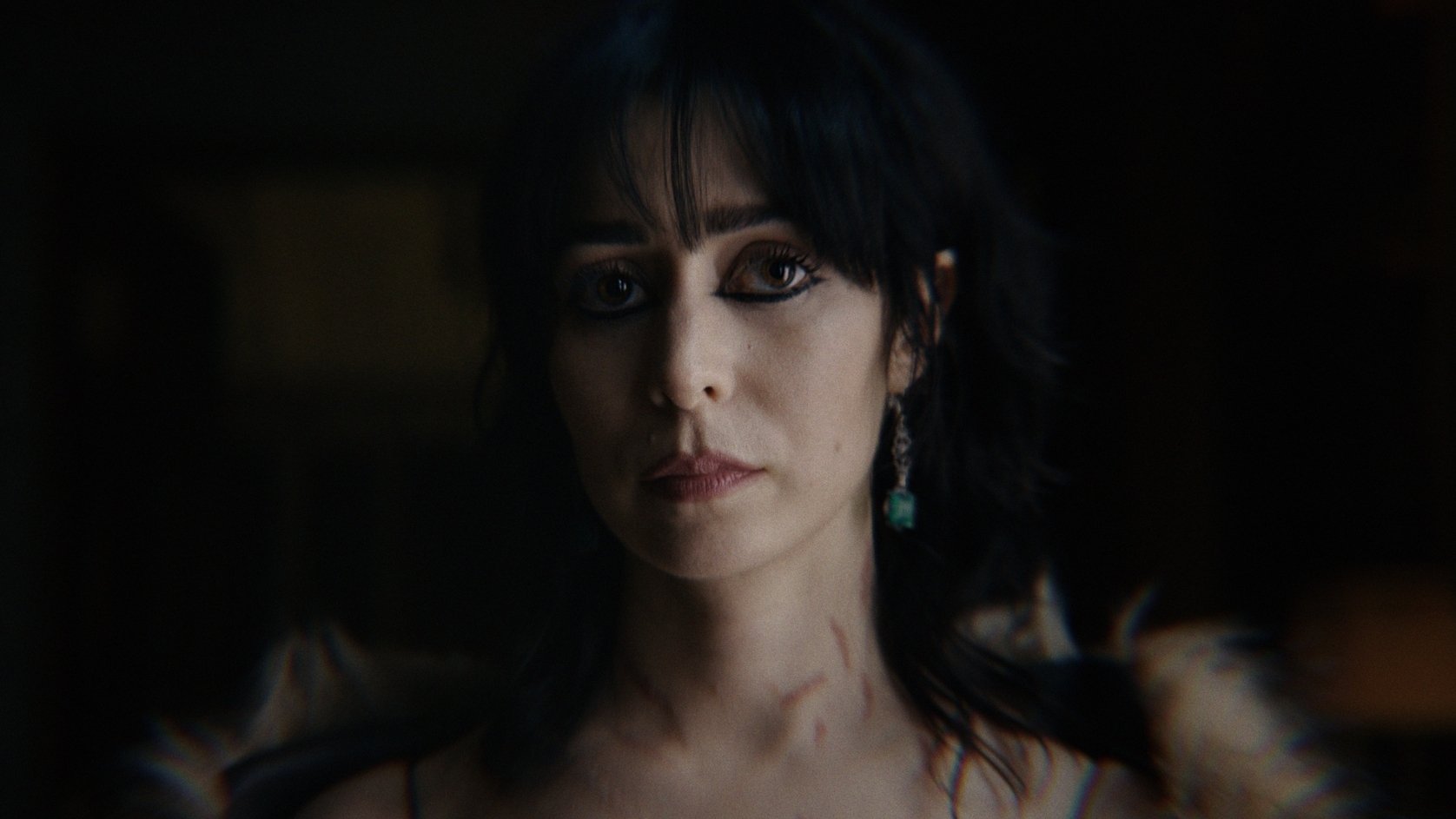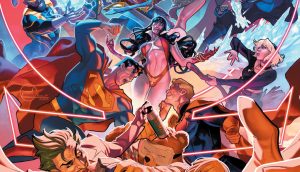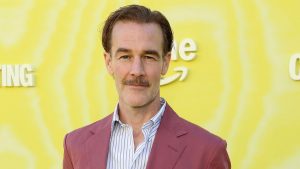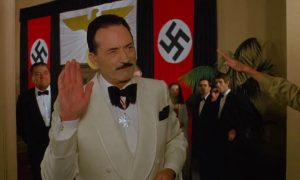
This article contains spoilers for The Penguin.
Cristin Milioti is having fun, and she deserves it. Not only is The Penguin star, who has done excellent work for years in projects such as Palm Springs and Made for Love, getting the praise she deserves, but her character Sofia Falcone also finally exacts revenge on her treacherous family, all while establishing her own mob identity as Sofia Gigante.
“It’s as fun as it looks,” Milioti tells Den of Geek when she stops by our NYCC studio. “Because you understand her backstory and her history… I mean, I can only speak for myself, but it deepens how much I wanted her to have that experience and how much I wanted her to sort of let loose. It’s such a long time coming, and obviously I feel that as someone who loves her and roots for her.”
Although we’re only halfway through the first season of The Penguin, Sofia has already transcended her origins as a secondary character in the Batman comics by Jeph Loeb and Tim Sale. Where, in the comics, Sofia is the bruising Falcone daughter who becomes a killer called the Hangman and dies in battle with Harvey Dent, on television, she’s stepping up to take control of the city’s underworld.
The Penguin introduces Sofia as recently released from Arkham Asylum, where she’s been staying since being framed for killing seven women by hanging. But in The Penguin‘s show-stopping fourth episode, we learn that her father Carmine Falcone murdered those women, along with her mother, and pinned the deaths on Sofia.
Thus, Sofia in The Penguin flips the script on the character’s standard origin, which was the entire appeal for showrunner Lauren LeFranc.
“I liked the idea of sort of speaking in a larger way about how we often label people as crazy and how historically we’ve labeled women as hysterical, especially with mental institutions in the past. I thought a lot about Rosemary Kennedy in that regard, who received a lobotomy in her 20s because her father put her in an institution.
“So I just wanted to dig into that and … take advantage of the way that we think of the Hangman and of Sophia in the comics,” LeFranc explains. “When Sophia enters the show, she does so as a cipher and it’s through really Oz’s lens that we see her, so it’s easy to side with Oz and it’s easy to call her crazy.”
That perspective allows LeFranc to put ethical import on Sofia’s arc. “I think we all can fall prey to just labeling someone easily without knowing their full story, so it felt essential to give her a full story.”
The central part of Sofia’s story occurs a week after The Batman, in which not only did the Riddler and Batman face off to save Gotham, but Sofia’s father Carmine was revealed to be a rat and murdered. That period of turmoil opens the way for Oz to make his power play and for Sofia to come into her own.
“It’s a rise to power story on some level for Oz, so I knew generally where I needed to leave him as a character,” LeFranc says of The Penguin‘s relationship to The Batman. “But then really the beauty of it is that I had a lot of freedom within that to play. Matt [Reeves, director of The Batman] was really gracious about saying, ‘Yeah, you can create new canon.’”
That new canon comes across in Sofia’s self-actualizing in the wake of her father’s dethroning, which complicates Oz’s own machinations.
“For me, the most important and essential thing in any story, no matter if you’re between two films or anything, is the characters,” LeFranc says. “Making sure that you do the work to have the characters feel alive and rich and complicated, that you have backstory for them, whether you fully see it or not on screen, and that you know where they’re emotionally going.”
The main drive of Sofia’s story is summarized beautifully in a surprising scene from episode three in which she and Oz try to convince the boss of Gotham’s Triads to distribute a new drug called Bliss. To ease the boss’s trepidation, Sofia gives a speech about the psychological need that drives every person and how the people of Gotham experiencing pain from everything they’ve lost have become desperate. Sofia may be gesturing toward teens dancing on a club floor, trying to get over the devastation the Riddler wrought in The Batman, but she’s really talking about herself.
“That speech is kind of a weirdly vulnerable moment for her,” Milioti explains. “She’s in a very unsafe environment, not just the club, but with Oz near all of it. She knows how people look at her when she walks in a room.”
Sofia’s ability to use that vulnerability and surprise those who would underestimate her makes her a formidable opponent to Oz and a larger threat to Gotham City in general. And, for Milioti, it’s what makes Sofia fit within the world of Batman.
“I think that’s what’s so special about Batman and also about our show is that you’re seeing like where pain goes when you don’t treat it with care,” Milioti says.
Both Batman and the Penguin have rocked Gotham City because of the way they deal with their pain. Sofia’s understanding of her own pain clearly makes her a formidable challenge, so we had to ask Milioti whether she felt her character could take on the Batman himself if they ever crossed paths.
“Absolutely, she could!” Milioti enthuses. “She’s so smart and she’s also so instinctual. That’s why she and Oz are such good adversaries. There’s a history there and they know each other, but she can smell when he’s lying. There’s that great line [in episode four]: ‘I trusted him even when every cell in my body told me not to.’ She operates on that level and is surrounded by people who aren’t in touch with that.”
With only three more episodes of The Penguin left, Sofia’s only getting better at operating on that level, and it’s a lot of fun—for her, Milioti, and us in the audience.
The Penguin airs on HBO and streams on Max on Sundays at 9pm EST.
The post The Penguin: Cristin Milioti on Sofia Falcone’s Rise and Whether She Could Take on the Batman appeared first on Den of Geek.











